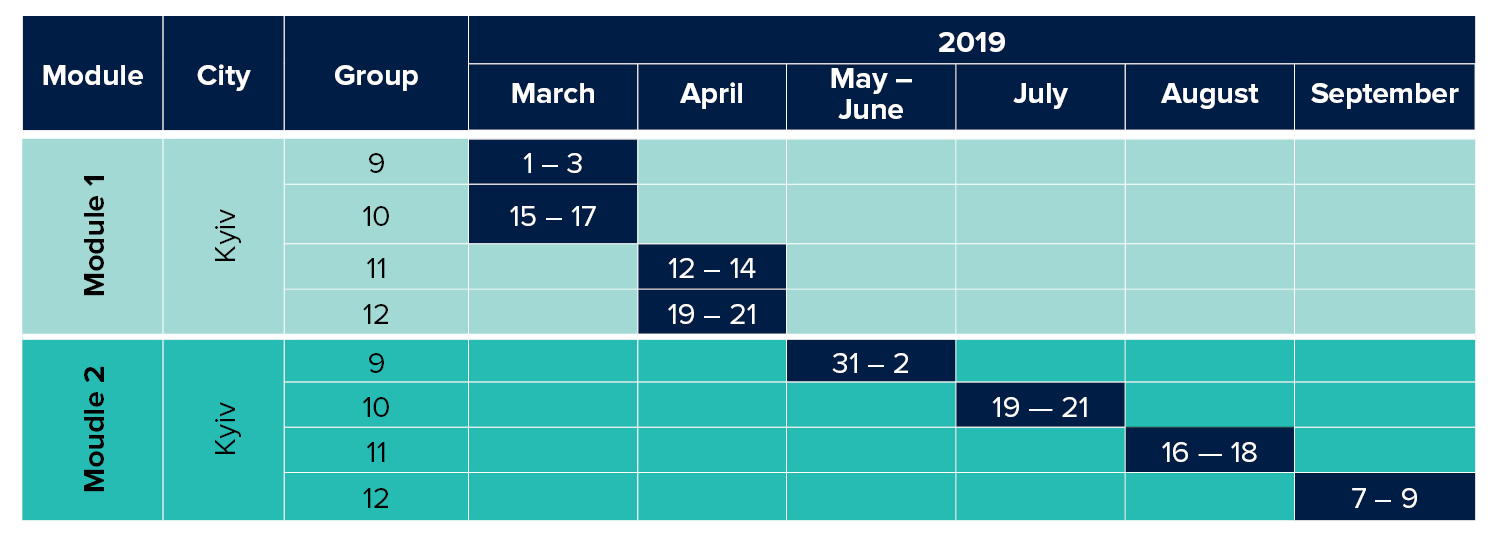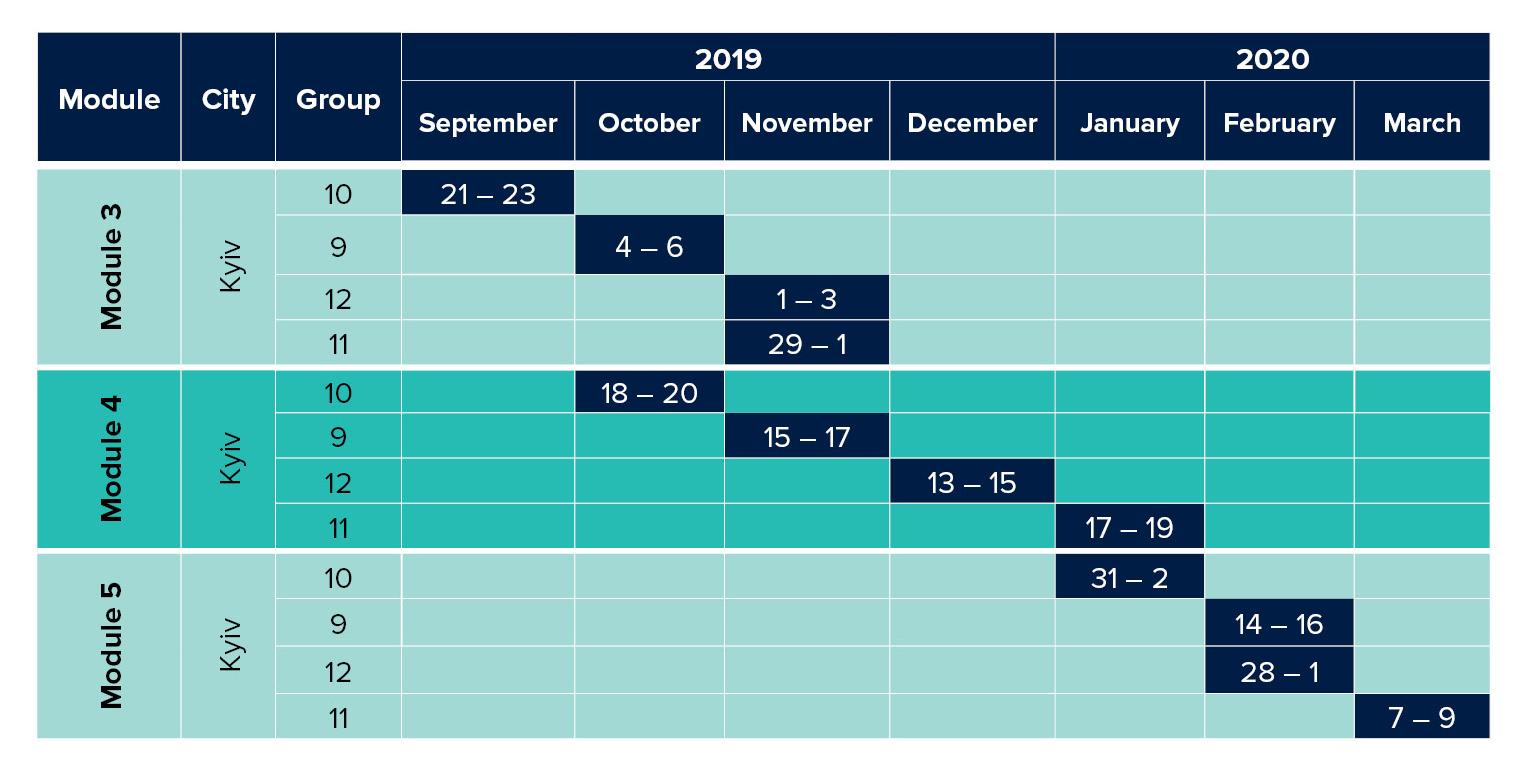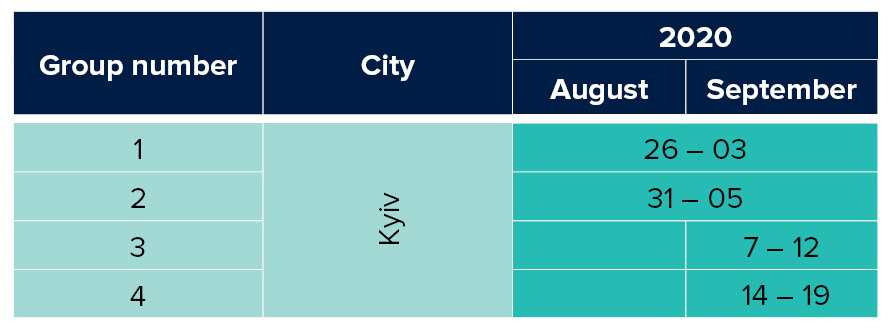About
The “Tomorrow’s Lawyer” is a professional development program aimed at creating, providing content and organizational support for a friendly environment and communication platform for training, exchange of experience and professional communication, as well as the formation of a community of like-minded people in order to promote the rule of law, protect human rights and achieve goals of fair justice.
Participants in the Program – lawyers who share its values and seek to provide legal assistance in accordance with the highest ethical standards and be effective leaders in the professional community and agents of change in society.
BACKGROUND OF THE PROGRAM
The program was launched as a partnership initiative of Ukrainian legal community supported by international donors.
The first training sessions of the Program were developed and implemented during 2016-2017 as a consequence of a series of assessment sessions evaluating the needs of the legal community in Ukraine, conducted by experts from the Canadian Bar Association within the framework of the “Quality and Accessible Legal Aid in Ukraine” (QALA) Project, carrie out by the Canadian Bureau for International Education (CBIE) with the support of the Government of Canada.
ORGANIZERS AND PARTNERS OF THE PROGRAM
“Tomorrow’s Lawyer” NGO is the organizer of the Program.
The Non-Governmental Organization “Tomorrow’s Lawyer”, within the framework of its mission, elaborates and implements professional development programs for lawyers in order to increase their leadership role in accomplishing reforms, strengthening the rule-of-law community and the rule of law state in Ukraine, and develops and maintains an effective professional network of the leaders in Legal Community who adhere to the values of fair justice, provide legal assistance in accordance with the highest ethical standards and are effective agents of change in society.
In 2018, the Program was supported by the INL Section (Technical Assistance to Ukrainian Law Enforcement Agencies) of the US Embassy in Ukraine.
The INL Section is responsible for coordinating and implementing criminal justice and law enforcement training and technical assistance programs in Ukraine funded by the Department of State and other USG agencies. The LES office works closely with the Ministry of Justice, the Office of the Prosecutor General, the Ministry of the Interior, the State Border Guard Service and other agencies in the implementation of assistance programs to combat terrorism, organized crime, corruption, economic and financial crimes, intellectual property rights, trafficking in persons and related criminal activity.
The partners of the Program implementation were the Ukrainian Bar Association (UBA) and the Bar Association of Legal Aid Providers (BALAP).
VALUES OF THE “TOMORROWS LAWYER” PROGRAM:
- Respect for the rule of law and the protection of human rights. We believe the human is the highest value, while law is the basis of human relations.
- Accessibility of law and justice. We believe in the vital need for everyone to be aware of their rights, have the opportunity to implement them and protect them and take active advantage of this opportunity.
- Serving the community and the goals of fair justice. We believe that the Bar is an important social institution and an integral part of the justice system, which imposes a special responsibility before the society.
- Professional ethics. We believe that adherence to the highest ethical standards is a necessary and indisputable condition for the professional activity of a lawyer in the interests of the client and for the purposes of fair justice.
- The desire for excellence and constant development. We believe in the need for continuous education, exchange of experience and best practices sharing. Openness to new knowledge, skills and abilities is an important prerequisite for success.
- Leadership. We believe in the community of participants and graduates of the “Tomorrow’s Lawyer” Program and its leadership in the Legal community, promotion of the highest ethical standards in the legal profession, contribution to the implementation of democratic reforms and forward-looking social change.
2019 TRAINING MODULES
MODULE 1: ATTORNEY-CLIENT RELATIONS
- Expectations management and dual communication. Interview with a client and explaining the role of a lawyer.
- The ethics of communication with the client, the duties of the lawyer before the client.
- Providing advice to client and reporting.
- Managing emotions and stress.
- The role of lawyer in promoting equal access to justice.
MODULE 2: BUILDING COLLEGIAL RELATIONS WITHIN THE JUSTICE SYSTEM
- Establishing effective communication with procedural opponents. Ethics of communication.
- Handling toxic and complicated communication.
- Conflict management and communication with an aggressive counterpart.
- Direct and cross examination of witnesses.
- Strong Defence Lawyer’s speech in court.
MODULE 3: COMMUNICATION IN THE LEGAL COMMUNITY
- Leadership in the legal community.
- Change management
- Mentoring and coaching.
- Independence of a lawyer. Continuous education.
- The ethics of communication within the legal community.
MODULE 4: PUBLIC RELATIONS AND MEDIA. ADVOCACY
- Communicating the rule of law principles and promoting equal access to justice and reforms.
- Effective verbal and written communication with various media.
- Managing public opinion. Professionalism and publicity. Working with mass media on matters of public interest.
- Use of social media.
- Advocacy.
MODULE 5: LEGAL WRITING
- Legal analysis and writing based on the structure of the norm.
- Forms of legal analytical text drafting.
- Counterparts, facts.
- Speech writing skills.
In addition, during 2019, participants and graduates of previous Program cycles (particularly selected or by open registration) may participate in optional inter-module events, covering the following topics:
- Philosophy of law.
- Legal ethics.
- Participation in the court session.
- Mediation
Each module lasts three days.
The training schedule is published annually no later than one month before the commencement of the first training.


Starting in 2020, the newly appointed prosecutors from the Prosecutor General’s Office have become participants in personal development programs.
Training modules for prosecutors of the Prosecutor General’s Office for 2020-2021:
01. EFFECTIVE & CONSCIOUS COMMUNICATION
- Basics of communication, building partnership relations.
- Establishing effective communication with participants in criminal proceedings: victims, investigators, suspects/accused, lawyers, judges, managers.
- Ethics of communication.
- The role of the prosecutor in ensuring equal access to justice.
02. MORAL PHILOSOPHY & ETHICS
- Justice and social control.
- Moral and ethical guidelines in the profession, their search and balance.
03. COMMUNICATION WITH THE MEDIA AND SOCIETY
- Communication of the rule of law principles and the necessary reforms.
- Effective oral and written communication with various media.
- How to work with public opinion. Professionalism and publicity. Working with the media in matters of public interest.
- Building partnerships with journalists.
04. LEADERSHIP
- Independence of prosecutors and their responsibility.
- Development of the professional community.
- Changes management.
- Mentoring and tutoring.
- Independence of a lawyer. Continuous professional development.
- The prosecutor is a leader in cooperation with pre-trial investigation bodies. The prosecutor is a leader in the implementation of a new organizational culture and institutional changes in the prosecutor’s office.
- Prosecutor – leader – personification of public prosecution.
05. LEGAL REASONING & WRITING
- Text analysis and writing based on the structure of the norm.
- Formats of organization of legal analytical text.
- Counter-arguments, facts.
- Mastery of written speech.
- Formats for writing legal texts, synthesis and written argumentation.
06. DEVELOPMENT OF EMOTIONAL INTELLIGENCE. RESISTING PROFESSIONAL BURNOUT
- Actualization of knowledge about emotions and feelings, their differentiation and classification.
- Development of skills of reflection, awareness, recognition and expression of own emotions and feelings.
- Formation of the ability to consciously regulate one’s emotional state through mastering certain techniques of self-regulation in cases related to professional activities.
- Learning to identify the emotions of other people, communication partners in personal and professional life.

